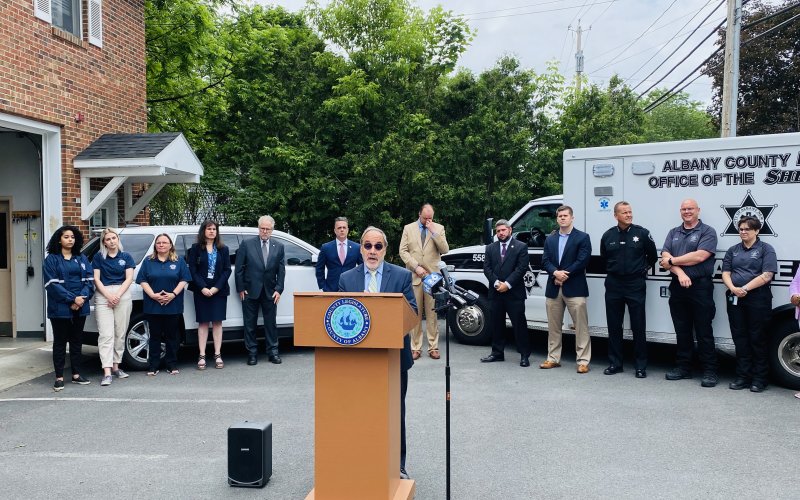Aiding in a Mental Health Response for Mental Health Crises: SSW, SPH Team Receive Additional Funding

ALBANY, N.Y. (Feb. 3, 2022) – Two professors who were tapped to work on a program addressing mental health crises response in the hilltowns of Albany County have won additional funding to expand the work.
Tomoko Udo and Carmen Morano, an associate professor in the School of Public Health and professor in the School of Social Welfare respectively, are partners on the Albany County Crisis Officials Responding and Diverting (ACCORD) program. Launched this past June, the pilot program teams social workers and paramedics in the hilltowns to provide assistance in emergencies where a law enforcement presence is not necessary.
Udo and Morano are conducting an analysis of the program to determine the level of success and make suggestions for improvement, with the end goal of scaling the program county wide. The additional funding, from the New York State Health Foundation, will help other communities more easily mimic what Albany County is doing without reinventing the wheel.
“Demands for a different approach to mental health crises have increased after a series of high-profile killings of unarmed citizens by law enforcement officers, possibly linked to mental illness,” Udo and Morano said in a statement. “Many communities, including Albany County, are rightly exploring programs where non-violent behavioral health crisis calls are responded to by a team of a medic and a crisis worker. Empirical research and standardized training and implementation guides will greatly help more communities in their efforts to implement such programs.”
With this funding, UAlbany will continue providing technical assistance during county-wide expansion planning by developing a standardized implementation protocol and data collection tools. These resources can be used to onboard other municipalities and new staff, as well as to conduct evaluations to identify barriers, best strategies and investigate the efficacy of the program.
“Programs that provide a mental health response to mental health crises are important in many ways, and overall can help reduce social and health disparities,” added Udo and Morano in a statement.
County officials echo the sentiments, saying “the ongoing pandemic has taken its toll on the mental health of countless Americans, and now more than ever we need to prioritize innovative alternative crisis response models. That’s why Albany County and our partners, including the Albany County Legislature, are investing in our ACCORD initiative, but we couldn’t do it without the dedicated professors at the University at Albany, who understand the deep complexity of these issues,” said Albany County Executive Daniel P. McCoy. “In only the first six months, our pilot program responded to 240 calls from 100 separate individuals, and I’m looking forward to it expanding further in the coming months to ensure even more people experiencing a mental health crisis throughout Albany County can get quick access to the services they need.”
“The success of the ACCORD pilot program has proven that a new approach to emergency response is necessary,” said Albany County Legislature Chairman Andrew Joyce. “With the data collected from UAlbany, we can analyze what works and what changes are necessary as we move forward on this endeavor. As the ACCORD program prepares to expand throughout Albany County, UAlbany’s continued involvement is critical. We are happy to see that they have received the funding necessary to further implement this program effectively and provide our residents and municipalities with the resources they deserve.”
For more information on ACCORD, read the June 2021 news story.




